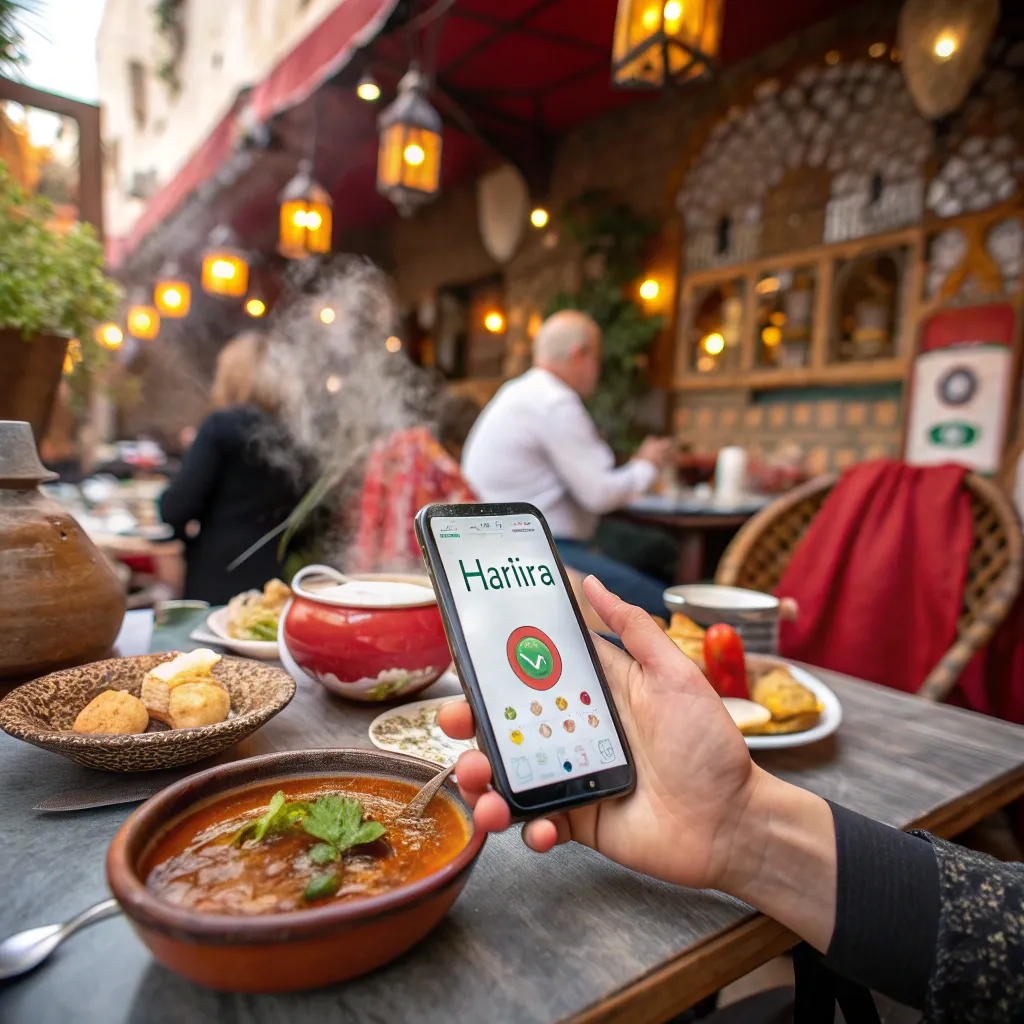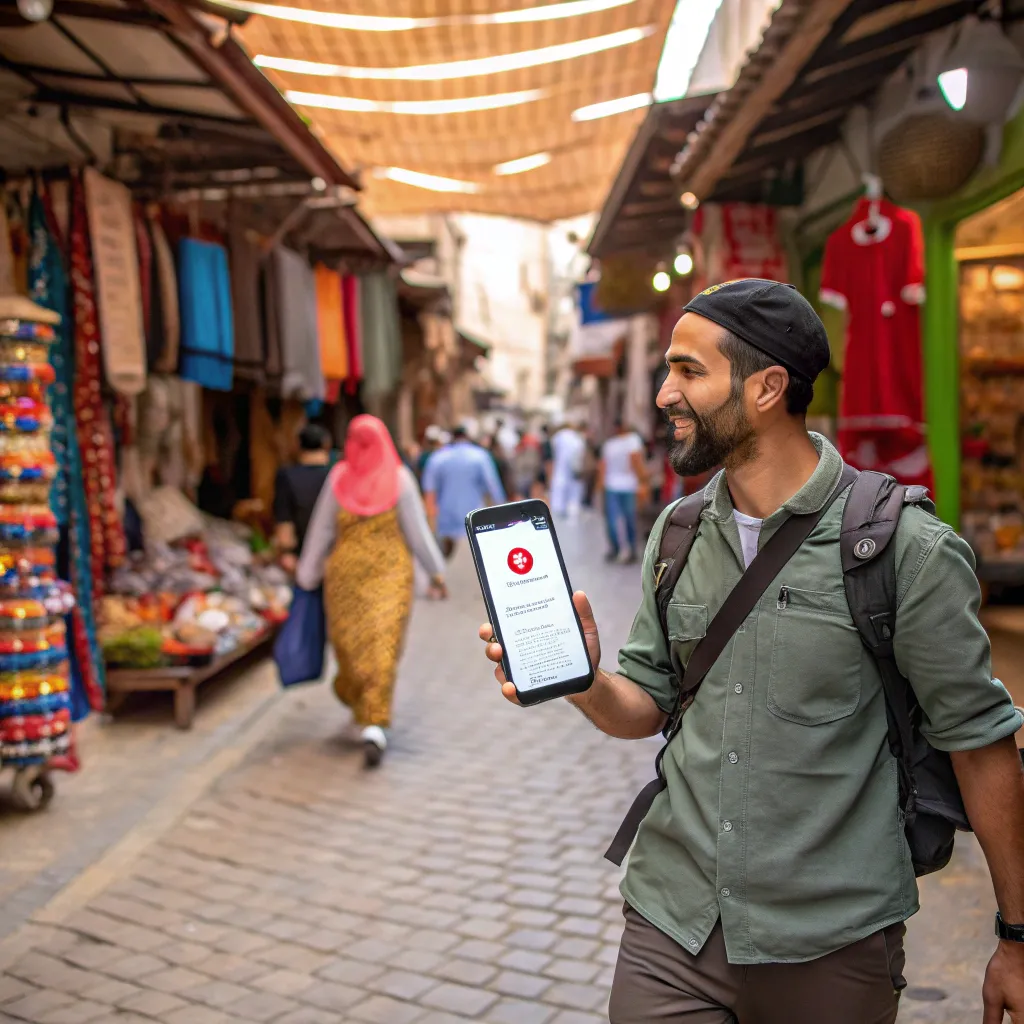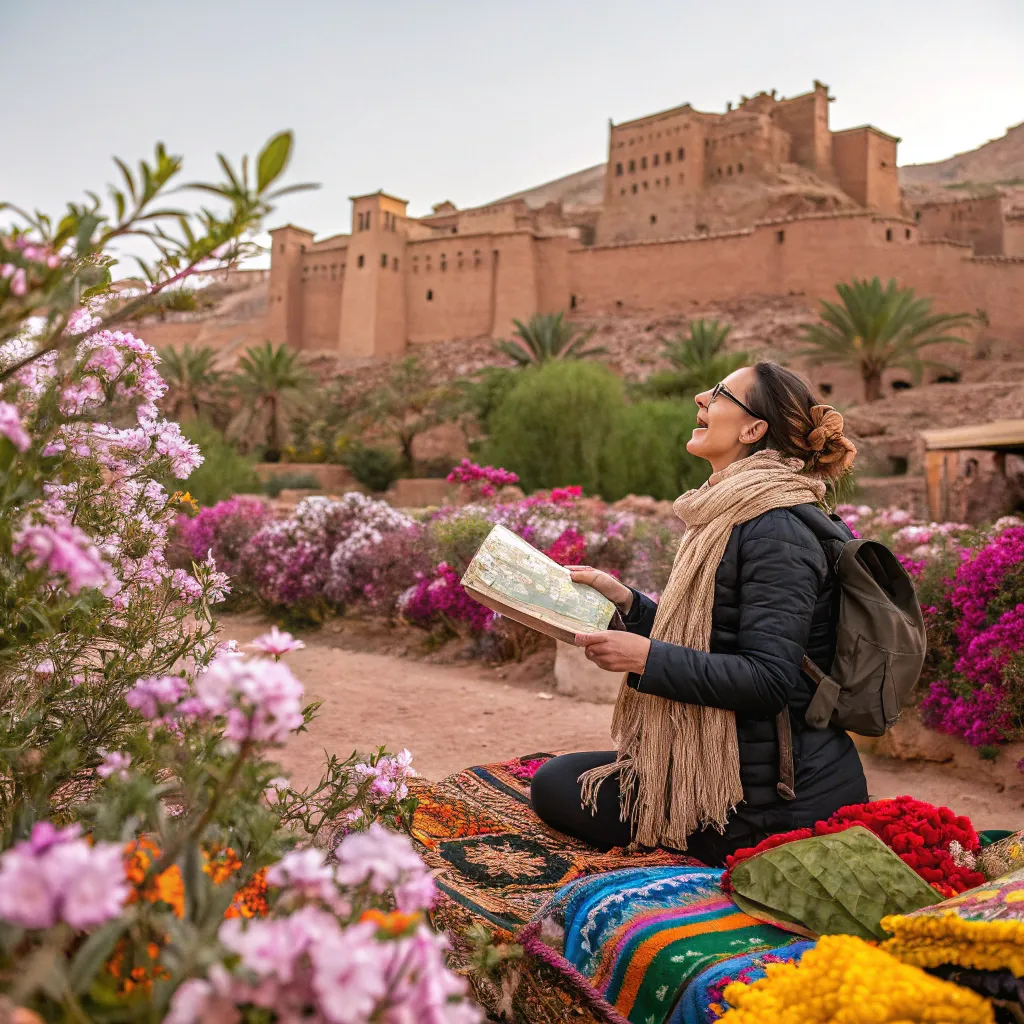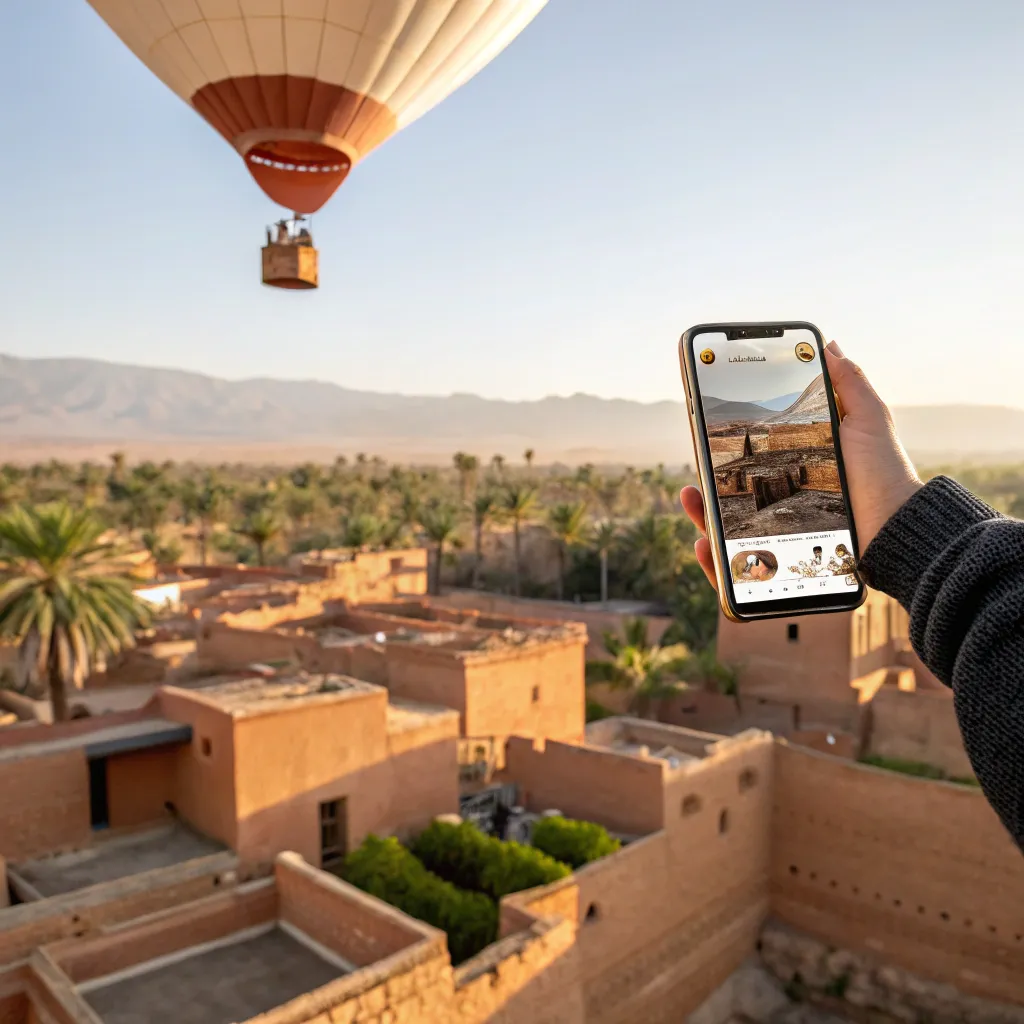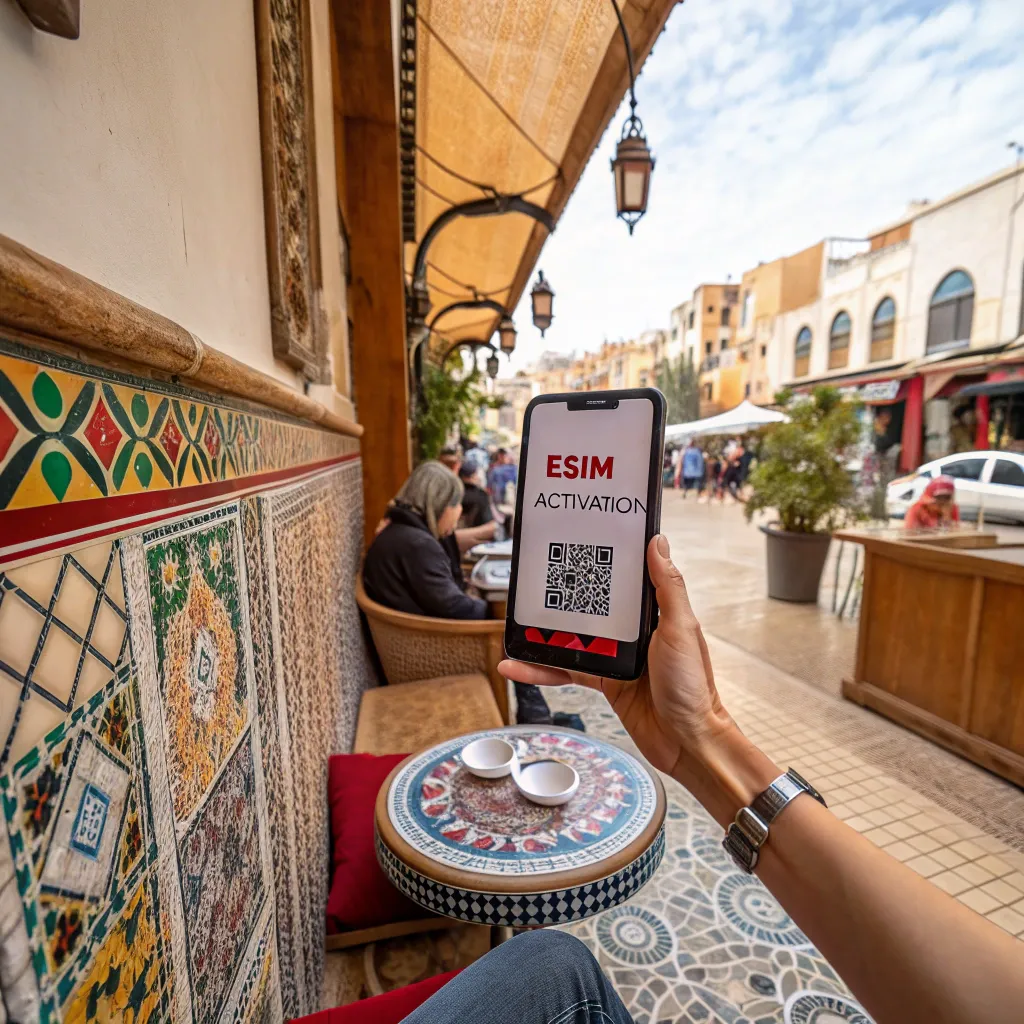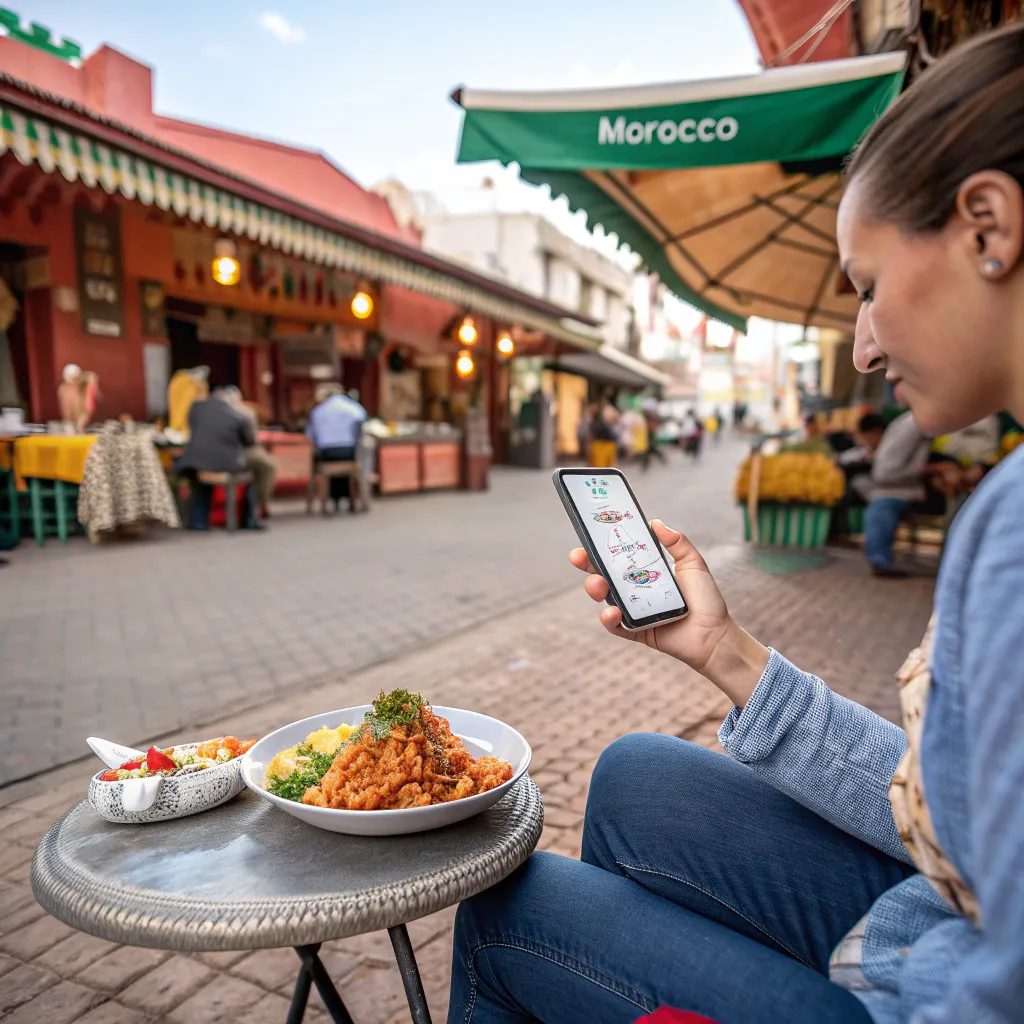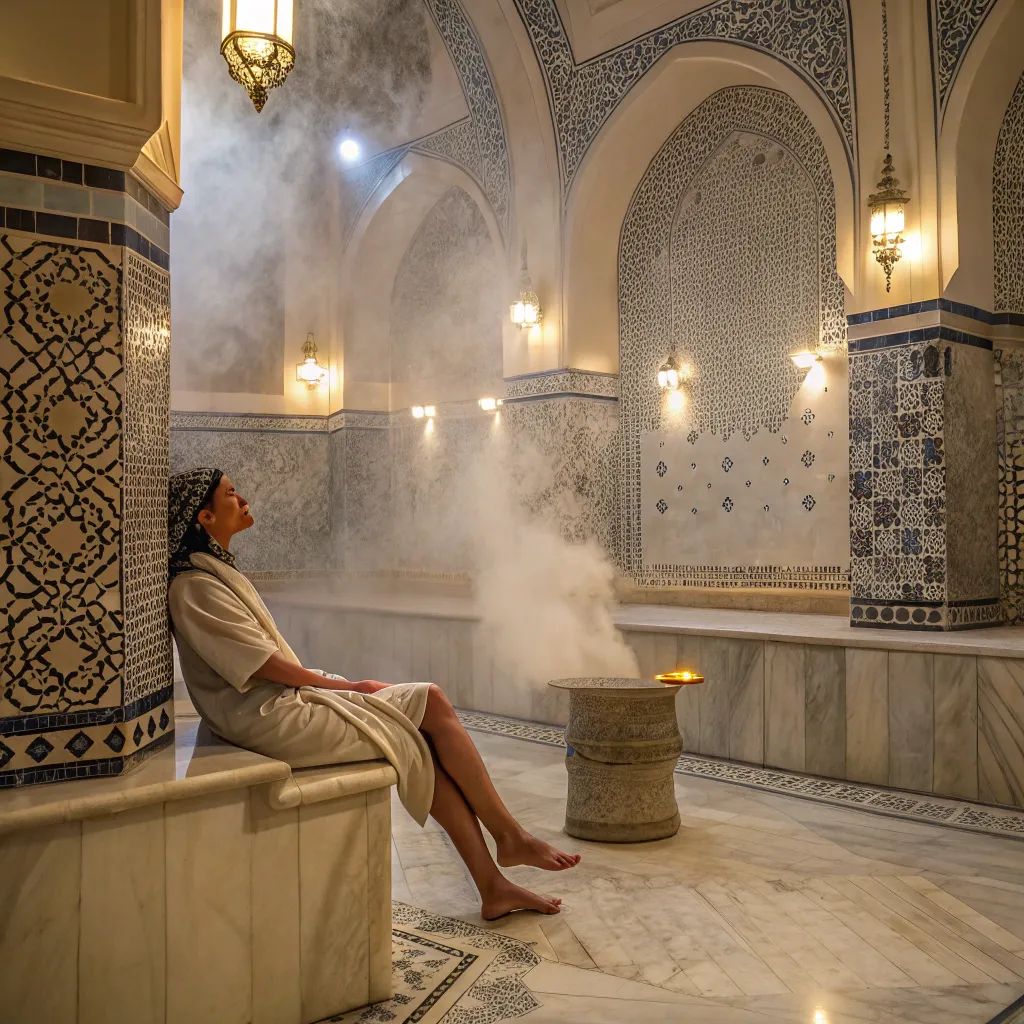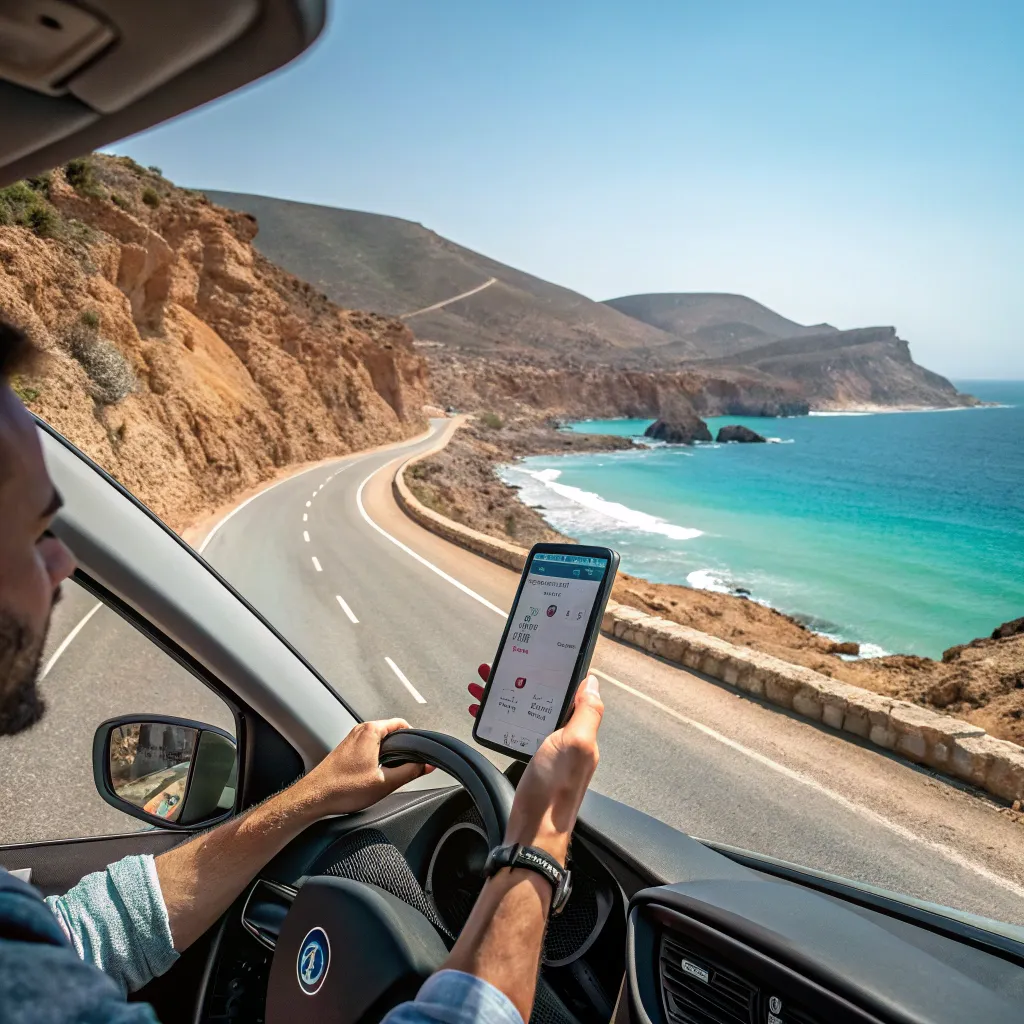Simless
December 5, 2024
Navigating Moroccan Culture: Your Guide to Respectful and Rewarding Encounters
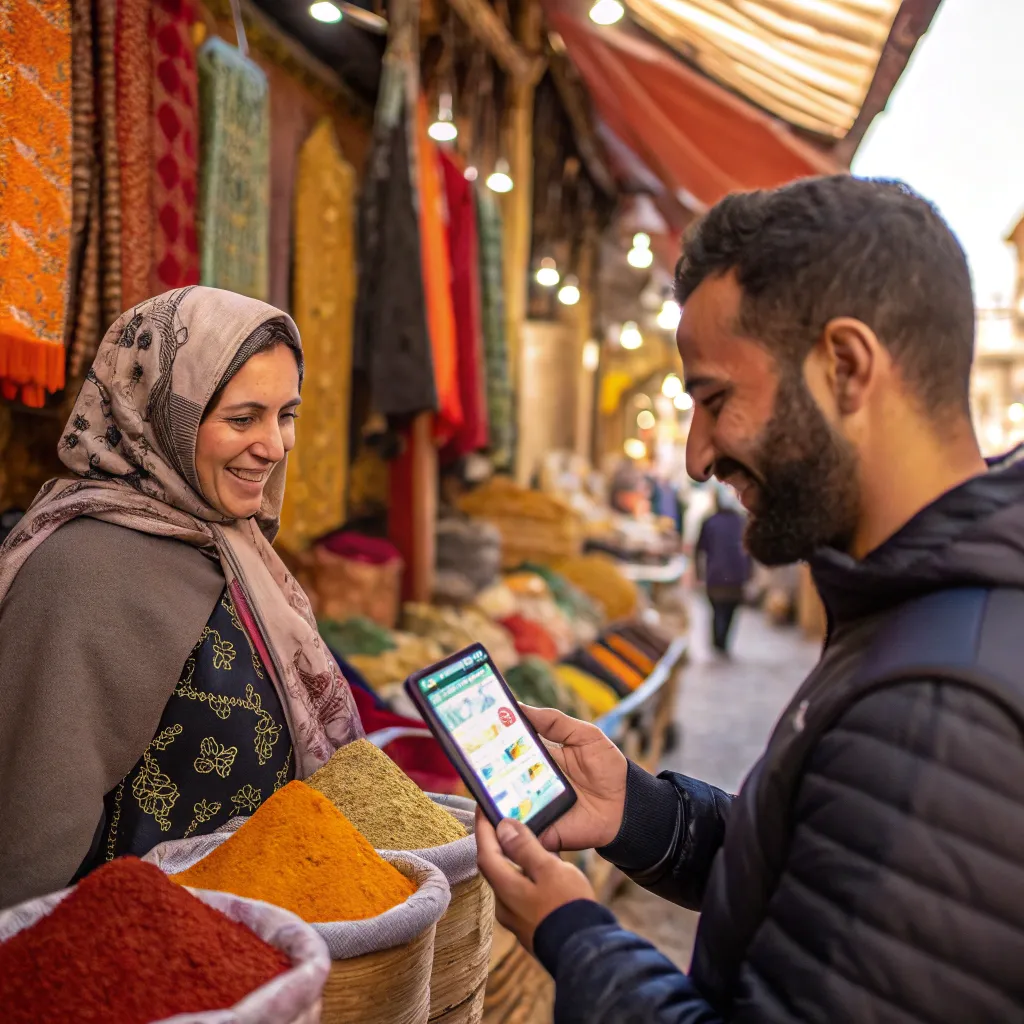
Beyond the Tourist Trail: Connect with the Heart of Morocco Through Cultural Awareness
Imagine this: you're not just observing the vibrant tapestry of Moroccan life from a distance, you're woven into it. You're sharing stories over mint tea with a Berber family in the High Atlas Mountains, bartering for spices in a bustling Marrakech souk with a twinkle in your eye and a few well-placed Darija phrases, and navigating the labyrinthine medinas with the confidence of a seasoned explorer.
This is the magic that happens when you travel not just as a tourist, but as a culturally aware and respectful guest.
This guide isn't about rigid rules or stuffy formalities; it's about fostering genuine connections, showing respect for Morocco's rich traditions, and unlocking a deeper understanding of this captivating country. We'll explore the nuances of Moroccan etiquette, from greetings and dress codes to dining customs and religious sensitivities. And because the modern traveler needs a digital compass, we'll even show you how your eSIM can be your secret weapon for navigating cultural complexities and enriching your Moroccan adventure. Get ready to embrace the warmth of Moroccan hospitality and create memories that will last a lifetime!
1. Greetings: The Art of the Moroccan "Salam"
In Morocco, greetings are more than just a quick "hello"; they're a ritual, a sign of respect, and an opportunity to establish a connection.
- Do: Greet people with "As-salamu alaykum" (peace be upon you), followed by "Labas?" (how are you?). A warm smile and direct eye contact convey sincerity. Wait for women to extend their hand first, as some may prefer not to shake hands with men.
- Don't: Resort to casual greetings like "Hey" or "Hi." Avoid overly familiar physical contact, like hugs, unless initiated by the other person.
2. Dress the Part: Respectful Attire for a Cultural Immersion
Dressing modestly is key to showing respect for Moroccan culture, especially in rural areas and near religious sites.
- Do: Opt for loose-fitting clothing that covers your shoulders and knees. Carry a lightweight scarf to cover your head when entering mosques or visiting more conservative areas. Embrace the elegance and comfort of traditional Moroccan clothing like djellabas or kaftans.
- Don't: Wear revealing clothing such as shorts, tank tops, or short skirts. Beachwear should be reserved for the beach or poolside.
3. Dining Etiquette: Sharing Meals, Sharing Moments
In Morocco, meals are more than just sustenance; they're a celebration of hospitality and a time for connection.
- Do: Wash your hands before eating, a customary practice in many Moroccan homes. Eat with your right hand, as the left hand is traditionally considered unclean. Accept offers of food and tea; it's a gesture of generosity and welcome.
- Don't: Use your left hand for eating or passing dishes. Refuse food or drink directly; it can be seen as impolite. If you're not hungry, simply take a small portion and express your gratitude.
4. Photography: Capturing Memories with Respect and Sensitivity
Morocco's vibrant landscapes and people are incredibly photogenic, but always remember to ask permission before taking photos.
- Do: Politely ask "Photographia?" (Can I take a photo?) before photographing people or their property. Offering a small tip is a gesture of appreciation. Capture the beauty of the architecture, the bustling souks, and the stunning landscapes with respect and awareness.
- Don't: Photograph government buildings, military personnel, or sensitive areas. Avoid taking photos of people without their explicit consent.
5. Religious Observances: Navigating the Sacred with Respect
Islam is a cornerstone of Moroccan culture, and respecting religious practices is essential.
- Do: Dress modestly when visiting mosques or religious sites. During Ramadan, be mindful of those who are fasting and avoid eating, drinking, or smoking in public during daylight hours.
- Don't: Interrupt prayers or enter mosques unless specifically invited. Non-Muslims are often restricted from entering certain areas. Avoid making negative comments about religious or cultural practices.
6. Tipping: Expressing Gratitude with Grace
Tipping is customary in Morocco and is a way of acknowledging good service.
- Do: Tip guides, drivers, and service staff appropriately (e.g., 10-20 DH for bellhops or housekeeping). Leave small change at cafes or restaurants if service isn't included.
- Don't: Overtip, as it can create awkwardness or unrealistic expectations. Don't feel obligated to tip unofficial "guides" who offer unsolicited assistance.
7. eSIM: Your Cultural Navigator
Your eSIM is more than just a tool for staying connected; it's your gateway to understanding and navigating Moroccan culture with grace.
- Translation Apps: Use translation apps to quickly look up words and phrases, clarify meanings, and even learn some basic Darija.
- Cultural Guides: Access online resources about Moroccan traditions and etiquette to deepen your understanding and avoid cultural missteps.
- Maps: Navigate unfamiliar areas respectfully, avoiding restricted zones or private properties.
8. Avoiding Cultural Faux Pas: Navigating with Respect
- Public Displays of Affection: Keep PDA discreet, as it's generally frowned upon in Moroccan culture.
- Aggressive Bargaining: While haggling is expected, avoid being overly aggressive or disrespectful.
- Ignoring Local Advice: Listen to the wisdom of locals; they often have valuable insights into safe areas, weather conditions, and cultural norms.
Conclusion: Embrace the Culture, Enrich Your Journey
By understanding and respecting Moroccan customs, you're not just being a polite traveler; you're opening yourself up to a richer, more meaningful experience. Embrace the local traditions, connect with the people, and create memories that will last a lifetime. Your eSIM can help you navigate this cultural landscape with confidence and grace, allowing you to fully immerse yourself in the magic of Morocco.
Last Articles
Simless
March 17, 2025
Simless
March 16, 2025
Simless
March 15, 2025
Simless
March 14, 2025
Simless
March 14, 2025
Simless
March 13, 2025
Simless
March 7, 2025


